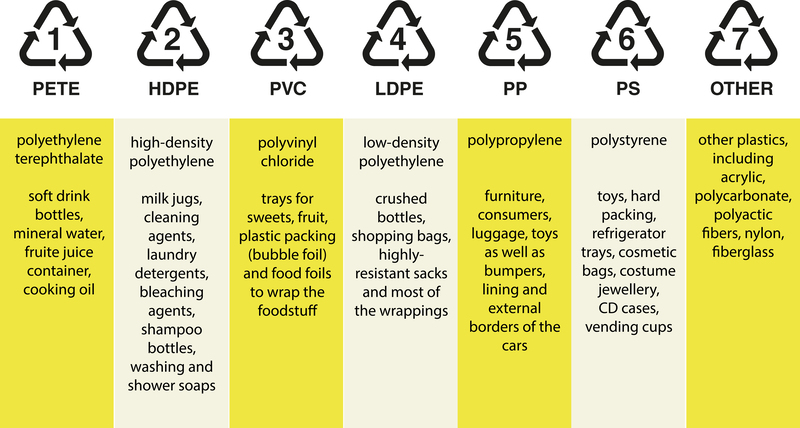Smart Ways to Cut Costs When Disposing of Bulky Waste Items
Disposing of large, unwanted items such as furniture, appliances, or mattresses can be a daunting and expensive task. Yet, bulky waste disposal doesn't have to break the bank. There are several cost-effective and even eco-friendly ways to get rid of your oversized trash. In this comprehensive guide, we'll explore various smart ways to cut costs when disposing of bulky waste items, helping you declutter efficiently while saving money and protecting the planet.
Understanding Bulky Waste Items
Before you begin the process of disposing of large waste items, it's essential to understand what qualifies as bulky waste. Typically, bulky waste refers to items that are too large for standard trash bins, such as:
- Old sofas and armchairs
- Mattresses and box springs
- Refrigerators and other large appliances
- Exercise equipment
- Bedroom and living room furniture
- Televisions and other large electronics
- Outdoor furniture and grills
- Carpets and rugs
Proper bulky item disposal is crucial, not only for convenience but also for compliance with local regulations. Many local councils or waste management services have specific rules for discarding large items due to their weight, size, and potential environmental impact.

Smart and Affordable Bulky Waste Disposal Methods
Now, let's explore the most effective and economical solutions for getting rid of your bulky waste items without draining your wallet.
1. Take Advantage of Municipal Services
Many cities and towns offer bulky waste pickup services for residents, often at a reduced cost or even free of charge. These programs are designed to help households safely dispose of oversized trash items without inconveniencing neighbors or overfilling public bins.
- Scheduled Bulk Collection Days: Check your city or county's website for monthly, quarterly, or annual bulk pick-up events.
- Book Individual Pickups: Some municipalities allow residents to schedule curbside pickups for a small fee or as part of their regular waste removal bill.
- Recycling Centers: Bring your bulky waste to local transfer stations or recycling centers, which often charge less than private haulers.
*Tip*: Always book your slot in advance as these services can get fully booked, especially during spring-cleaning or moving seasons.
2. Donate Usable Items to Charities
One of the most sustainable ways to handle bulky waste is by donating items that are still in good condition. Many charities and non-profits gladly accept furniture, appliances, and even electronics, sometimes offering free pick-up services for large donations.
- The Salvation Army, Habitat for Humanity, Goodwill Industries, and similar organizations often accept gently used furniture and appliances.
- Check Pick-up Policies: Some groups do not accept items with stains, rips, or extensive wear, so confirm their requirements beforehand.
- Tax Deductions: Donating not only saves on disposal costs but can also provide a charitable tax deduction. Ask for a receipt!
Remember, reusing is always cheaper (and greener) than disposal.
3. Sell or Give Away Bulky Items Online
Turning your unwanted large items into cash or giving them a second life can be incredibly satisfying. Use local classifieds and online platforms such as:
- Facebook Marketplace
- Craigslist
- Freecycle Network
- Nextdoor
Post clear photographs and honest descriptions to attract buyers or givers. For items that might not sell quickly, offer them for free on "curb alerts"--just be sure to follow your city's rules regarding sidewalk pickups.
4. Upcycle or Repurpose for a New Life
Creatively repurposing old furniture or appliances can save you disposal costs and add a unique touch to your home. Some easy upcycling ideas include:
- Turning pallets into garden planters
- Transforming dresser drawers into under-bed storage
- Modifying old tables into work benches or desks
There are countless online tutorials for even the most DIY-challenged. If you can't use the item yourself, consider offering it to local artists or community groups.
5. Pool Resources with Neighbors
Consider working with neighbors to organize a collective bulky waste removal event. By pooling together, you can save money on transportation, split disposal fees, or even qualify for group discounts from junk removal companies.
- Hire a skip bin or dumpster together and share the cost.
- Schedule a group pickup with a local hauler for a bulk rate.
Community collaboration not only helps cut costs but also builds neighborhood camaraderie.
Innovative and Cost-Saving Disposal Alternatives
6. Rent a Trailer or Truck - Self-Haul Bulky Waste
If you're comfortable handling the work, hauling your items to a disposal site can be far cheaper than hiring a professional.
- Renting a trailer or van for a day is often more affordable than multiple pickups.
- Warehouse clubs, home improvement stores, or equipment rental companies often have competitive rates.
- Unload your items directly at municipal drop-off centers or recycling depots.
*Note*: Double-check the weight limits and accepted materials at your chosen drop-off site to avoid surprise fees.
7. Contact Scrap Metal and Recycling Companies
Some bulky junk items such as washing machines, dryers, or metal bed frames are valuable to scrap metal recyclers. Many companies pay for scrap metals or collect them for free as part of their business models. This is a particularly good option for:
- Broken appliances
- Old bikes or fitness equipment
- Metal bed frames and furniture
By choosing this route, you not only save on disposal costs but may also earn a little extra cash!
8. Leverage Local Clean-Up Programs
Many local governments host annual or semi-annual clean-up events where residents can bring bulky items for low or no cost. Upcoming events are often advertised online, in community centers, or through local papers.
- Mark your calendar for city-wide clean-ups or recycling days.
- Arrive early, as lines can get long, and space may be limited.
Participating in these events is an easy way to beat high fees associated with private waste removal companies.
Avoiding Common Costly Mistakes in Bulky Waste Disposal
Poor planning and misinformation can turn disposing of bulky waste into an expensive headache. To make your next project smooth and budget-friendly, watch out for these typical pitfalls:
- Illegal Dumping: Never abandon bulky items on curbs, in vacant lots, or remote areas. The fines and legal fees from illegal dumping far outweigh any disposal cost savings--and it's harmful to the environment.
- Misclassifying Waste: Some items require special handling (e.g., fridges containing refrigerants, electronics with hazardous parts). Ensure you're using the correct disposal method to avoid surcharges.
- Ignoring Free or Subsidized Programs: Many residents pay extra simply due to lack of awareness about local rebates or subsidized disposal events. Research thoroughly before paying out-of-pocket.
- Hiring Without Comparing: Junk removal service costs can vary greatly. Always request multiple quotes and check for reviews, credentials, and hidden fees before hiring.
- Last-Minute Disposal: Waiting until you must move out often means paying premium emergency fees. Whenever possible, plan ahead to use free or low-cost disposal options.
Environmental and Financial Benefits of Smart Bulky Waste Disposal
Every time you opt for cost-effective methods for bulky waste removal, you're not just saving money--you're making a positive impact on the environment:
- Reduces landfill burden by extending the life of usable items through donation and resale.
- Cuts greenhouse gas emissions by supporting local recycling and repurposing efforts.
- Supports community well-being by providing affordable furniture or appliances to families in need.
- Enhances neighborhood safety and aesthetics by preventing illegal dumping.
A little extra effort can translate into massive savings both for your wallet and the world at large!

Frequently Asked Questions about Bulky Waste Cost-Cutting
Q1: What is the cheapest way to get rid of a large couch or old mattress?
The cheapest option is usually utilizing your city's free bulk pick-up program or donating the item if it's still in good condition. If these aren't options, check local recycling drop-offs or post it online for free pickup.
Q2: Do junk removal companies offer discounts for multiple items?
Many companies offer sliding scale rates or discounts when removing several items during one visit. Always ask about multi-item pricing and get written estimates from at least three providers.
Q3: Can I put my bulky waste out with regular trash?
Typically, no. Most mainstream trash services do not accept oversized items outside scheduled bulk collection days. Placing bulky waste with regular trash may result in fines or your trash not being collected.
Q4: Are there any materials or items that require special disposal?
Absolutely. Appliances containing refrigerants, electronics, items with hazardous components (like batteries or fluorescent bulbs), and certain treated woods often require specialized recycling or disposal. Check your municipality's guidelines first.
Conclusion: Declutter the Smart Way--Save Money and the Planet
Disposing of large, unwanted items doesn't have to be a major expense. By leveraging local resources, community programs, online marketplaces, and recycling initiatives, you can dramatically reduce bulky waste disposal costs--often to zero!
Plan ahead, explore your options, and always check for free or discount programs in your area. Whether you donate, sell, recycle, or repurpose, you'll not only cut costs but also take part in building a cleaner, greener community.
For more tips on sustainable living and affordable waste management, bookmark this guide on cost-effective bulky item disposal and share it with friends and neighbors who might need help clearing out their oversized clutter!